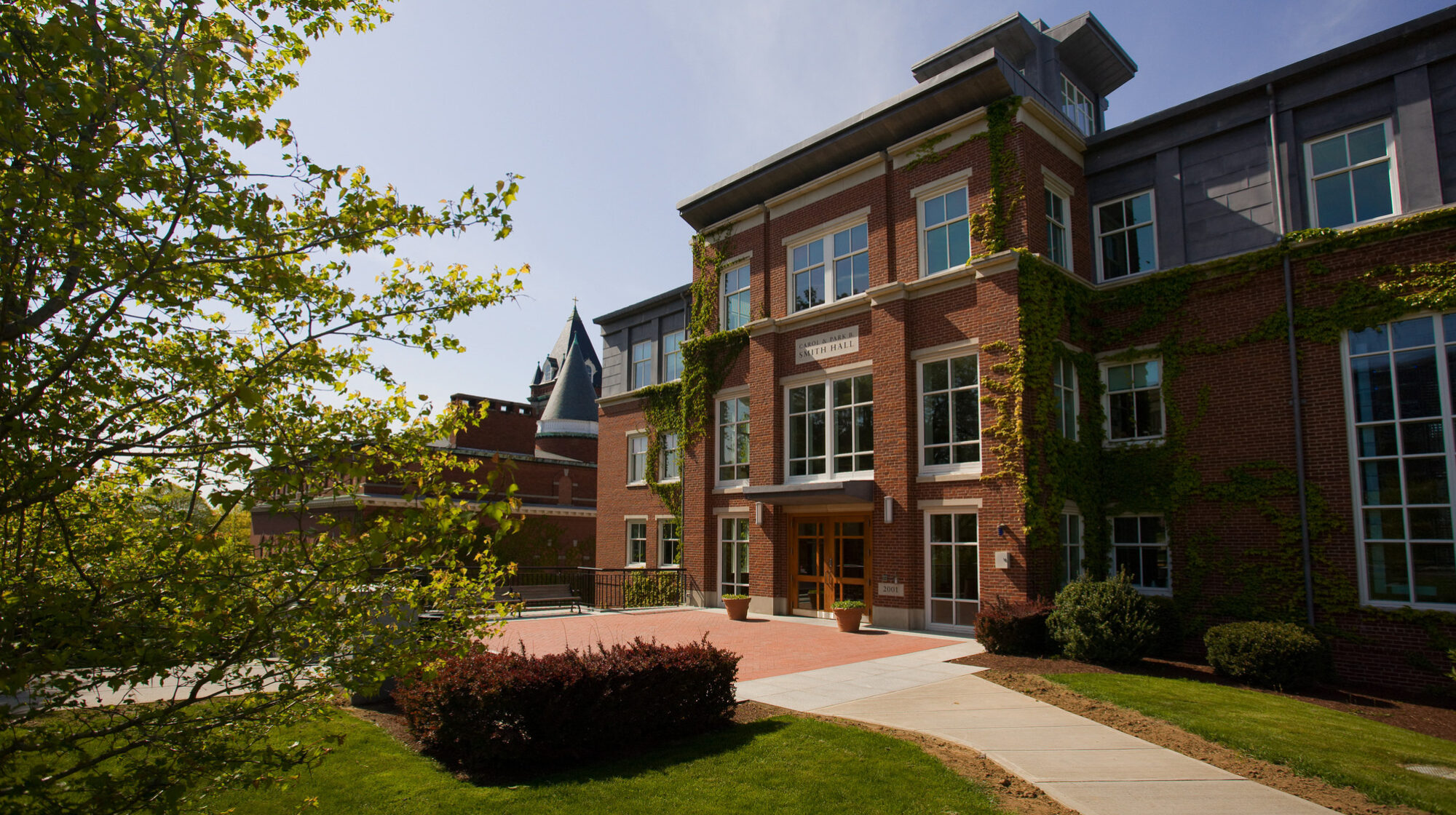
Editor’s Note: This post was written by Anne-Catherine Schaaf ’22 and Smarika Suwal ’22, who worked with Prof. Aaron Seider (Classics) as Research Associates.
In a world of quarantines and closures, who is venturing to the basement of Dinand Library to read bound copies of a journal? The answer, of course, is no one! Accessibility and inclusion were already guiding principles for our work on the New England Classical Journal (NECJ) before the COVID-19 pandemic, and they proved to be even more important in this new context. A regional Classics journal published by the Classical Association of New England (CANE), NECJ previously existed in only bound copies or behind a paywall. During our work as Research Associates, we were already in the process of transitioning the journal to Open Access on CrossWorks, and once the pandemic began the number of downloads and locations of our readers skyrocketed. As we think about the future, we know that accessibility and inclusion must remain our core principles, and we hope to build on the slow and meticulous work that helped us make the journal an Open Access publication this year.
Our daily work consisted of independent tasks like proofreading and uploading past articles, as well as more collaborative work such as making key decisions on the journal’s formatting and layout. As the semester progressed, we also began to focus on NECJ’s outreach. We discussed potentially creating social media accounts and obtaining DOIs (Digital Object Identifiers) to transition the journal to Open Access. Additionally, by creating new content like abstracts and keywords for older articles, we not only helped the journal reach new audiences but also improved our own writing and research skills, strengthening our ability to quickly absorb complex content and highlight the most important aspects people needed to find. Anne-Catherine created the journal’s first abstract and keywords list, establishing the outline for future abstracts and keyword lists. Smarika took on the major project of creating a spreadsheet to organize our archive of past NECJ issues.
All of these tasks tied into larger opportunities for learning, which we accomplished through regular readings and discussions about the historic exclusivity of Classics and the role classical journals, and NECJ in particular, have in dismantling existing structures of racism and other forms of bias within the field. Two particularly impactful pieces were this editorial from the American Journal of Philology and Dan-el Padilla Peralta’s talk on race, power, and inclusion in journals at the 2019 Annual Meeting of the Society for Classical Studies. We also discussed the racist events that occurred at that same annual meeting as well as Prof. Padilla Peralta’s and others’ responses to the meeting and those events. This knowledge has informed our own work outside of NECJ, as we were part of the team that created the Diversity and Inclusion Committee to support inclusion efforts in our own Classics department.
Our work concluded for the year with a presentation at the virtual CANE Annual Meeting on the work we had accomplished, what we had learned, and our plans for the future. A key goal of our presentation was to get feedback on our inclusivity efforts, and ideas for how to improve. The presentation was well received, and a robust discussion followed, with participants from all levels of classical pedagogy emphasizing the importance of representation in the field and offering many helpful suggestions to expand upon our aims for NECJ. The journal has transformed over the past year, but even more exciting changes await in its future, and as we look back, we are incredibly grateful for this learning opportunity, and eager to see how our work continues to make an impact.

